The Songkran (Thai water festival) held annually as part of the celebrations to mark the Thai New Year is now going to be adopted by Malaysia, says Culture and Heritage Minister Dato’ Rais Yatim. That would certainly garner a lot of support from most Malaysians, I gather. Should that happen, then Malaysia will join not only Thailand but also Myanmar, Laos and Kampuchea in celebrating the event. The Thai community of Malaysia, of which there are close to 50,000 approximately, are muted (as they are on most issues) on the move by the government to declare the festival a local event. Hopefully, the water festival will come complete with a public holiday or two (or three as the case is in Thailand) to enable Malaysians from all races and walks of life to go splash water on each other.
After all, some Malaysians are now even going to the extent of taking leave and popping across the border to Hat Yai to get themselves and others drenched in the process from the midnight of April 12 until April 15. Hat Yai, by the way, is the only place in Thailand where the water festival starts at midnight. Malaysians actually played a major role in getting the Thai authorities in this southern Thai city to begin Songkran at such an ungodly hour. It was found after Hat Yai began to gain popularity as a weekend getaway that Malaysians just did not know when to stop. They were still splashing water well after the sun had gone down and most of the Thais had gone indoors. Since they love splashing water so much, the starting time for the water festival was officially changed to one night earlier in Hat Yai as compared to other parts of Thailand.
Apart from the fact that it is a good time to get wet and cool down, April being one of the hottest month and all that, most probably are quite unaware of the actual meaning of Songkran and its significance to Thai society. The word actually has a Sanskrit origin, which means the beginning of a new Solar Year. But nowadays, just like anywhere else in the world new year is Jan 1, but just like in Malaysia, where the Muslim New Year is also observed, the Thais choose to have a long holiday to celebrate the Solar New Year.
During the afternoon of the 13th, Buddha images are bathed as part of the ceremony. Then young people pour scented water on the hands of parents and other elders as a mark of respect and to seek their blessings. One day, while passing through the province of Chachoengsao just north of Bangkok, I was to witness such an event celebrated rather grandly in a public park. All the old people of the village were seated in a row and after prayers were performed by the Buddhist monks, the villagers all took turns washing the hands of all the elders of the village.
In Malaysia, or at least in Kelantan where I came from, we still do this. Not necessarily on April 13 but the full moon night of April which could be any time from the 11th to the 20th. In Thailand April 13th was designated a Songkran Day for convenience and tourism sake. In Kelantan (I am not too familiar with the way it is celebrated in Perak, Kedah or Perlis where there are a large number of Malaysian Thais as well) the event is not celebrated on such a grand scale as the ones in Thailand, but in a decidedly more modest and subdued way. No splashing water on each other and all that. In fact we normally go no further than washing the hands and feet of our elders or even of those older than us. This is in fact a very noble gesture, a way of saying thank you and also to ask for forgiveness from them. It is assumed that they, being older than us would have at some point or other in the past carried us. I don’t know about you, but as far as I am concerned, those who carried me were fair game. They would have been given a nice drenching so that they will always fondly remember me. I must say computer era babies are denied one of their sources of fun with the advent of disposable and self-absorbent diapers. You no longer get those squeals of laughter from young mothers or female guardians that usually come with the warm and wet realisation that their laps have just been soiled. And those were just for the distant relatives mind you, because for the chosen ones, the ones we were terribly fond of, we bring out the heavy artillery. Not too different from the way cats and dogs mark their favourite territory, I must say.
Another reason this year’s Songkran was a bit subdued for me was that my grandmother on my father’s side passed away last year at the age of 94. No splashing of water if any were ever intended but just to the temples for the usual prayers held for the departed, that is held during the Thai New Year annually. Now the only torch bearer of the family left are her 97-year-old brother and another of her former sister-in-law who is 102. (The grandmother on my mother’s side passed away in her 30s long before I was born).
Although both of us were living in Kuala Lumpur, my grandmother and I did not see much of each other. In fact, we had never been very close. I was closer to my other grandmother’s younger sister who actually had a hand in bringing me up. A fierce old lady, she always kept a cane handy to make sure I recite my multiplication tables nightly and take my bath on time. She did not speak or understand much English but somehow could instinctively pick out my mistakes. There was never any need for me to be sent for special tuition in mental arithmetic. When you run out of fingers and toes, a cane is always quite handy in bringing out the best that you can be. I shudder to think that had she had a few more canes lying around I would probably have given Einstein a run for his money. Her only wish towards the later part of her life was to see me become a Buddhist monk, even if it was only for a day and of course to marry. Otherwise, she insisted that she could not die happy. We had a compromise of sorts. I agreed to become a monk but there was no way I would get married. True to her word, six months after I was ordained as a Buddhist monk, her mission on earth at last accomplished, she passed away after a short bout with cancer.
The bond that I shared with her never existed with my actual grandmother. So, when the latter passed away I regretted that we had never made any attempt to be close. In our own special way, I supposed we had a certain amount of affection and even love for each other but both of us just had trouble showing it. I too regretted that I did not heed my father’s advice to go see her and wash her hands and feet during the Songkran month last year. I was too busy travelling all over the place. I was destined, instead, to bathe her body before she was cremated.
About the time she died I was somewhere in Petaling Jaya having coffee with a friend. Nobody could get me until about 2am because my mobile phone ran out of battery. Still I was glad she did not die alone but with her loved ones around her – my aunt, her husband and their two children. And her maid, a girl name Puji. As it turned out only Puji knew what to do. She took out her Surah Yassin and recited the Quranic verses to my grandmother during her final moments. It was to me the kindest and most unselfish act of all. The most precious gift one human being can give to another. In an environment that is slowly becoming more polarised and intolerant, an uneducated Indonesian maid from a remote province in Java did what very few religious leaders armed with their rhetoric could ever do. In one simple act of kindness she portrayed the most beautiful part of the Muslims and Islam to somebody from outside her faith. From the bottom of my heart, THANK YOU, PUJI. You will always be a credit to your name.
Monday, October 02, 2006
Subscribe to:
Post Comments (Atom)

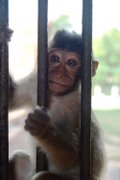
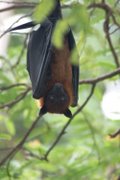


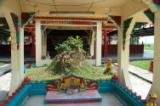
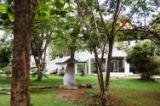
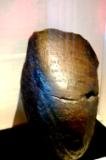
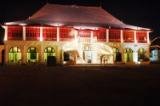
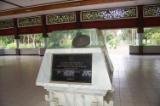



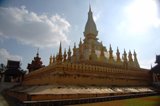
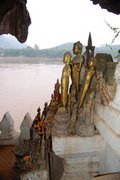

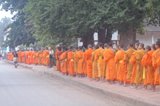


3 comments:
Puji's kind gesture really impressed me. We human beings should show affections to each other irrespective of our faiths. Religions are not selfish, but people are. How sad, right?
You are right. My closest friends are from different religions and that had never got in the way of lasting friendships.
You are right. My closest friends are from different religions and that had never got in the way of lasting friendships.
Post a Comment